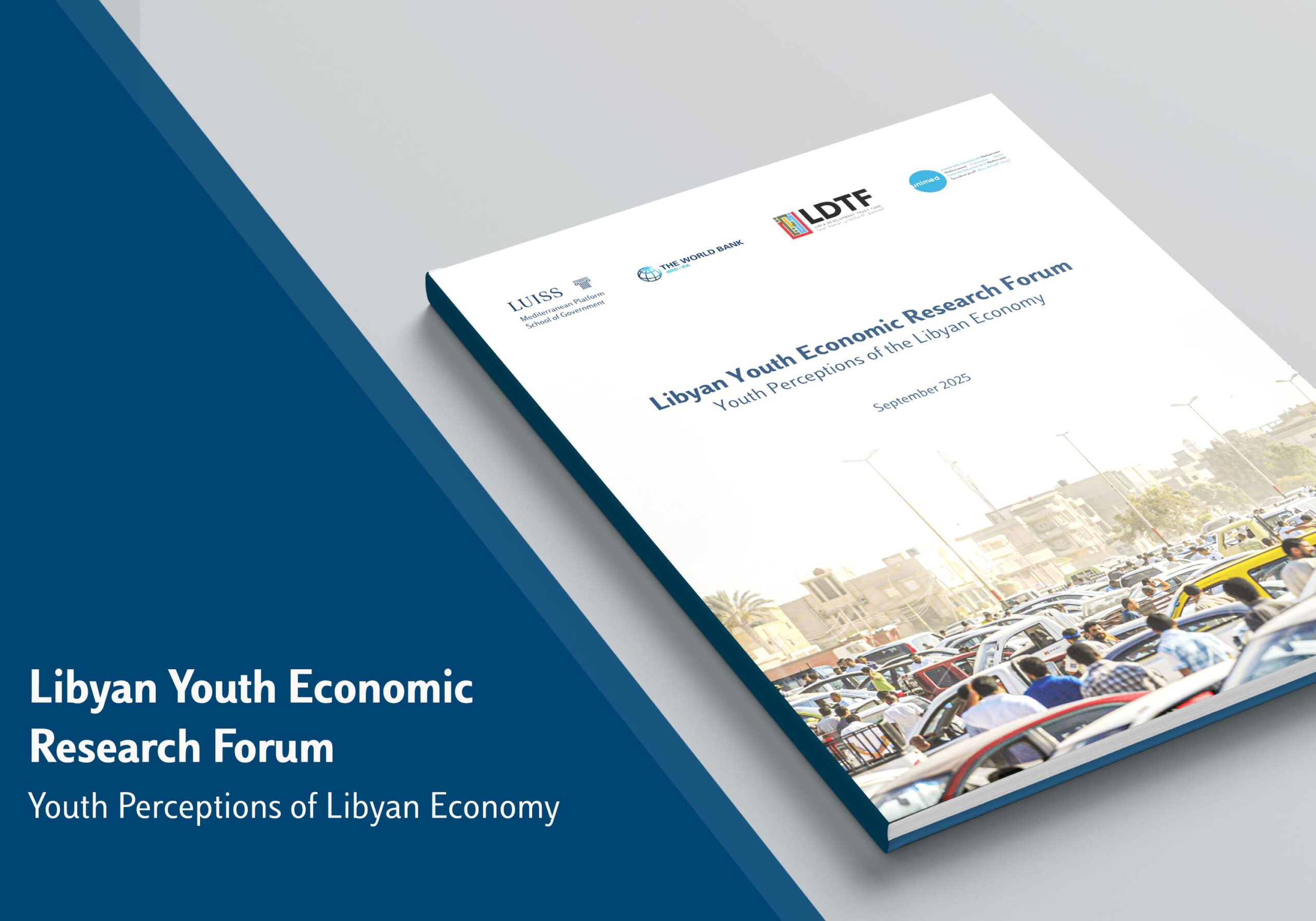Youth Economic Research Forum
Libya’s Next Generation Shaping their Future
Libya is in urgent need of an economic vision for the future. Developing one can complement the political process and over time, steer it toward peace and stability. However, it will require a new generation of leadership with a deep understanding of socio-economic issues.
The Youth Economic Research Forum takes the first step in this direction. Under the guidance of trainers and practitioners at the Mediterranean Platform, Libyan youth from across the country will build their research and policy dialogue skills. The project’s inclusive platform brings them together to discuss Libya’s economic vision with peers, experts, and key stakeholders from both Libya and abroad.
The project is managed by the World Bank’s Libya Development Trust Fund (LDTF), and implemented by the Luiss Mediterranean Platform, in partnership with the Mediterranean Universities Union (UNIMED).
Programme Benefits
The programme gives Libyan youth the benefits of:
- Thinking about and contributing to the future of economic policy and development in Libya.
- Being part of an inclusive platform for dialogue and development.
- Engaging with a network of peers, experts, and relevant Libyan and international stakeholders.
- Developing skills in research, analysis, and policy dialogue.
Project Report
The report in front of you is the culmination of the young researchers’ efforts. By shedding light on the perspectives of young Libyans, it complements the economic research conducted by the World Bank and other international institutions. Recognizing the often-limited capacity of international organizations to engage deeply with issues at the local level, the report also aims to bridge this gap by directly integrating the insights and experiences of Libyan youth into current research efforts to support a more grounded understanding of Libya’s evolving economic landscape.
This final report is the product of close collaboration between the Luiss Mediterranean Platform team and the Libyan participants. The research process began with the participants drafting structured research notes which were then reviewed, analyzed, and reworked to produce the final report, bringing together the most relevant findings in a policy-oriented format.
Click on the photo to download in Arabic or English



